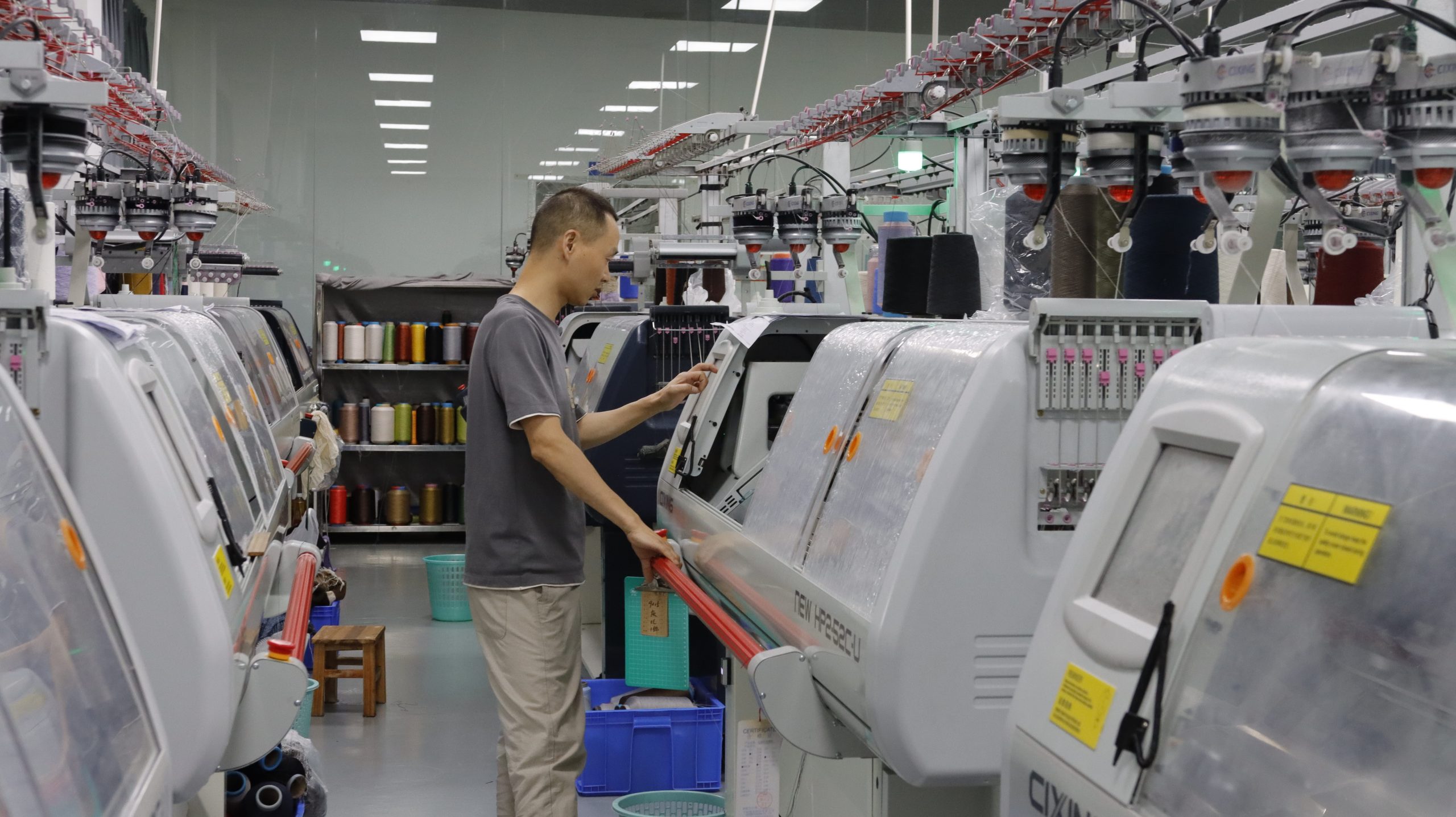With the rise of fashion and personalized needs, the market demand for custom knitwear is growing rapidly. Consumers’ pursuit of unique design and personalized style has driven the demand for customized production in the manufacturing industry. Driven by this trend, enterprises are no longer satisfied with the traditional mass production, but seek more suitable production methods with consumer needs. This makes finding the right manufacturer key, as they not only bear the responsibility for production, but also directly affect the quality of the product and ultimately the success of the brand.
The choice of manufacturer is crucial to the success of the brand. Brand success lies not only in the appearance of products, but also in the durability, comfort and quality standards that consumers expect. A professional manufacturer can ensure the production of high quality knitwear, thereby establishing the brand’s reputation and reputation in the market. Therefore, the choice of the manufacturer is not only a link of production, but also a key step in the success of the brand. By finding the right manufacturer, enterprises can stand out in the fierce market competition and win the trust and loyalty of consumers.
Define your customization requirements
Determining the type of product is the first task in the manufacturing process of custom hosiery. Sweaters, cardigans, scarves and other product types differ significantly in terms of design, production and market positioning. First, the purpose, style and target audience of the product need to be considered in detail. For example, sweaters may come in different styles, including crew necks, V-necks, hoodies, etc., while sweaters may involve a choice of different wool types. By specifying the type of product, manufacturers can be guided more accurately through the production process to ensure that the final product meets expectations.
The determination of the color, design and specifications of the knitwear is also very important.
Color choice is crucial to the appearance and brand image of a product. Explicit design requirements include patterns, textures, logos, or other decorative elements. Specifications need to consider size, fabric density, fiber content and other technical details. For example, if your product requires a specific label, button, or other accessory, it should be specified in detail at this stage. Clear designs and specifications help ensure that manufacturers understand and meet your creative vision.
The last is to determine the production batch and delivery time, the determination of production batch and delivery time directly affects the entire production plan and supply chain. First, you need to consider the market demand and sales expectations to ensure that the production volume is enough to meet the market demand, but not too much. Setting a reasonable delivery schedule is the key to ensuring timely delivery. In determining these aspects, it is recommended to take into account seasonal demand, the manufacturer’s production capacity, and transportation and logistics times. By consulting with the manufacturer and developing a clear production plan, you can minimize the uncertainty in the production process and ensure that the product is delivered to your hands on time.
Investigate potential manufacturers
When investigating potential manufacturers, first look at their experience and areas of expertise. By taking a deeper look at the manufacturer’s history, you can find out how long they have been in the industry and whether they have experience related to your product type. Take a closer look at their past projects to see if they have successfully completed similar custom projects. This knowledge helps determine if the manufacturer has the technology and expertise needed to produce your product.
In the survey, also pay attention to the manufacturer’s facilities and production capacity. Learn about their production scale, the technology they use, and the condition of their equipment to ensure they have the resources to meet your customized needs. By talking to past customers or visiting a manufacturer’s factory, you can get a more complete picture of how they actually operate.
Analyzing key aspects of different manufacturers, including pricing, service, and quality, is a key step in choosing the right manufacturer. In terms of pricing, compare the quotations of various manufacturers, pay attention to whether all costs are included, and ensure transparency and reasonableness. Find out the reasons behind the different quotes and whether they are related to high quality raw materials and fine workmanship.
In terms of service, examine the customer service level of the manufacturer. A manufacturer that focuses on customer satisfaction is usually able to provide better support and communication during the cooperation process. Find out how quickly manufacturers respond to customization needs and whether they are willing to provide customization recommendations.
In terms of quality, the manufacturer’s level of product quality is assessed by looking at previous product samples, customer reviews, and their quality control processes. Make sure they meet the quality standards of your product to avoid possible later problems.
GUOOU-MODE, as a supplier with 15 years of experience in the production of knitwear, has enough customized production strength and experience, we can quickly provide professional services to solve customers’ problems, and we also have a strong designer team, can provide customers with a variety of designs for choice. Finally, we have our own factory, which can ensure high quality while also quickly printing and shipping, to provide customers with high-quality products and services. We welcome customers to visit our factory and exchange orders in detail.
Connect with manufacturers
In the process of finding a custom knitwear manufacturer, establishing contacts with potential partners is a crucial step. First, establish an initial contact with the manufacturer via email or phone to express your interest in their services and products. Be sure to introduce your brand, business needs, and expectations for customized products in your initial communication.
It is recommended to ask clear and specific questions to ensure you have a thorough understanding of the manufacturer. These questions can relate to the manufacturer’s experience, production capacity, cooperation cases, and whether it can meet your customization needs. Through direct and clear communication, you can better understand the feasibility of the manufacturer and lay the foundation for subsequent cooperation.
Once the connection has been established, it is essential to further discuss your customization needs and special requirements in depth. Clearly explain to the manufacturer your design philosophy, color preferences, size requirements, and the materials required. Discussing these aspects in detail will ensure that both parties are on the same page during the design and production process.
Open and timely communication is essential to coordinate production plans and resolve potential problems. When discussing customization requirements, it is recommended to establish a clear project outline to ensure that the manufacturer has a clear understanding of every detail so that it can be executed accurately in actual production.
In addition to discussing design requirements, a detailed understanding of the manufacturer’s production processes and quality control standards is also indispensable. By asking manufacturers directly about their production processes, the technologies and processes they employ, and their specific measures for quality control, you can assess their production capacity and product quality.
Understanding the manufacturer’s quality control standards is an important step in ensuring that the final product meets your standards. Asking if the manufacturer has quality certification and is willing to provide samples for testing is an important factor in ensuring that expectations are aligned. By gaining a deeper understanding of how manufacturers operate, you can build more reliable and lasting relationships.

 English
English Deutsch
Deutsch Français
Français Italiano
Italiano Español
Español Русский
Русский Polski
Polski Nederlands
Nederlands Svenska
Svenska

